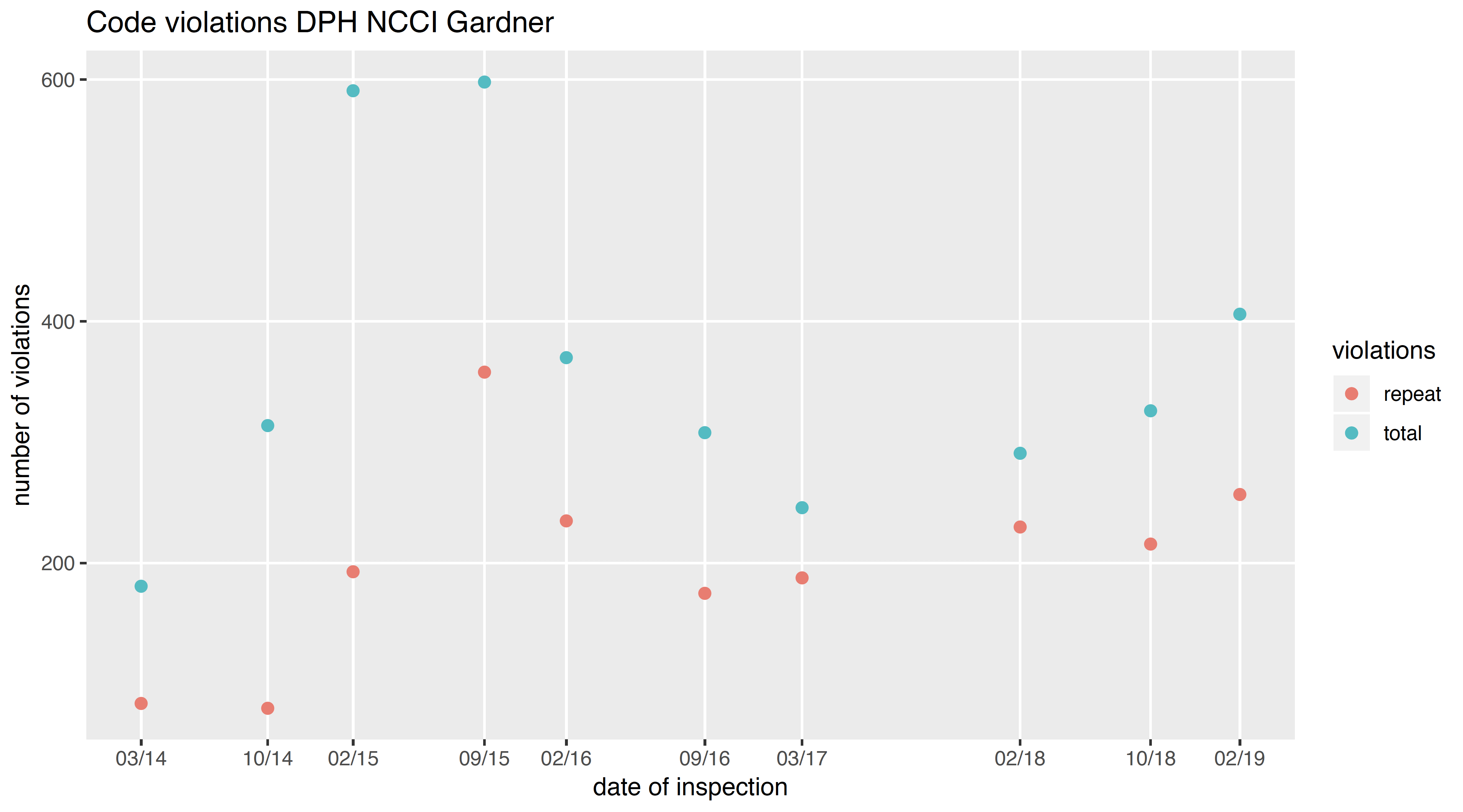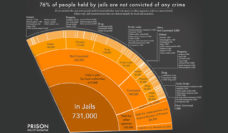One of the most important conversations to emerge out of recent protests against police violence addresses the messy question of whose job it is to investigate state agencies when the state itself is suspected of wrongdoing. States have never been good at self-enforcement, and this is perhaps even more true in the fortresses of prisons, where the public eye cannot watch. Few non-incarcerated people will ever see the inside of a US prison, aside from the visiting room. In Massachusetts, the Department of Public Health (DPH) plays the role of inspecting certain aspects of the state’s prisons, including water quality, ventilation, temperature regulation, and overcrowding. Public health has a unique responsibility not only to inspect facilities, but to speak out firmly when the health of incarcerated people is at risk.
As part of the push to increase oversight, many departments have also turned to accrediting bodies like the American Correctional Association (ACA) in lieu of complying with state auditors. The accreditation process involves in-person inspections, and a review of relevant documents. In March, the Massachusetts Department of Correction notified prisoners that two facilities would be undergoing re-accreditation, including the North Central Correctional Institute in Gardner. Prisoners hoped that this might lead to some much needed changes in conditions. A local coalition launched an open letter campaign to oppose re-accreditation, co-signed by hundreds of community members as well as health and legal professionals familiar with the facility.
Gardner is known to have substantial problems with its infrastructure. Of the facilities listed in the Department of Correction’s 2017 fourth quarter capacity report, 80% of the medium security prisons in Massachusetts were at or above maximum capacity. Gardner stands out as the most egregious, at 167% over capacity. A DPH report dated March 6, 2017 cited Gardner for “inadequate floor space” in 19 places, covering nearly the entire facility. That same report also found rotting floors, moldy showers, and crumbling plumbing. All told, DPH cited Gardner for 246 violations, 188 of which were carried over from the previous year. By 2019, the number of cited violations was 406.
Oversight matters. In 2015, shortly after Monica Bharel was confirmed as the Commissioner of DPH, the number of violations cited reached an apex just shy of 600 in a single inspection. Subsequently, with stricter enforcement under Bharel, DPH ordered the Department of Corrections to come up with a corrective plan. By 2016, the number had dropped by 40%.

Oversight by state agencies isn’t the public’s only source of information. The proliferation of “burner” phones has allowed the rest of the world to see an unmanicured vision of the inside of American prisons. In 2017, prisoners at the McCormick Correctional Institution in South Carolina smuggled out photographs of chicken carcasses from pet food manufacturers being served at dinner. Similar photographs emerged from Dekalb County Jail, and East Mississippi Correctional Facility with mattresses covered in black mold and ventilation systems full of debris. The risks to prisoners who smuggle photos out are substantial. Getting caught with a contraband phone can add years to a sentence. But the risks are no longer deterring prisoners, who see the outraged eyes of the public as their only recourse.
As if to confirm the misgivings of prisoners, the ACA quietly re-accredited Gardner with a score of 100% earlier this year. The DPH remained silent. Instead, DPH drew attention away from Gardner by giving the Department of Correction an award for installing a water filtration system at a different facility that had been left unfixed for over a decade.
Public health has a unique responsibility not only to inspect facilities, but to speak out firmly when the health of incarcerated people is at risk.
The standards by which Gardner was accredited are hard to ascertain. ACA also accredited the Metropolitan Detention Center in Brooklyn, Louisiana State Penitentiary (known as “Angola” after the former plantation upon which it sits) as well as the previously mentioned Dekalb County Jail and East Mississippi Correctional Facility. All have documented human rights violations. In fact, ACA also accredited the for-profit prison where transgender asylum seeker Roxana Hernandez died in May after being placed in a “freezer cell.”
Public health has a tremendous responsibility here that we can no longer ignore. Our commitment to historically and structurally marginalized populations must be more than a slogan. When groups like the ACA use the veneer of oversight to endorse injustice, we must respond without hesitation. When basic human rights are violated and basic human needs are denied, we must take action. And when oppressive systems harm health, we must call instead for community-based and community-led efforts that promote health.
Photo by Nicolas Steave on Unsplash















